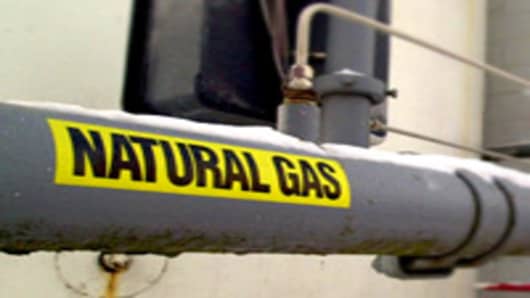The Iraqi government is expected to sign a $12 billion gas deal with Royal Dutch Shell and Mitsubishi Corp on Tuesday, Dow Jones reported.
Murtadha al-Jashaamy, deputy spokesman of Iraq's oil ministry, told Dow Jones that the initial contract should be signed on Tuesday.
The joint venture between Iraq's South Gas Co. (51 percent) Shell (44 percent) and Japan's Mitsubishi Corp. (5 percent) concentrates on gas from three of Iraq's southern oil fields - Rumaila, Zubair and West Qurna Phase 1, the DJ report said.
The gas will be sold to the Iraqi government for domestic power generation, according to Dow Jones.
The initial agreement was signed in 2008, but the JV could not be finalized because of disagreements over how the produced gas would be priced after the deal.
Under the current system, the ministry of oil subsidizes the gas sold to the ministry of electricity, but Shell and Mitsubishi wanted to sell the gas at higher prices more in line with international standards.
In order for the deal to go forward tomorrow, this pricing issue must be resolved, although how remains unclear, and the JV must also then receive formal approval by the Iraqi government.
This project is important to watch for several reasons, analysts said. First, as Iraq expands oil production it needs to also deal with the gas that is produced with increased oil output.
Second, as the country tries to rebuild its infrastructure to foster future growth, efficient and affordable power generation will be key.
Third, the deal is a reminder of some of the investment opportunities presented in Iraq if corporations and investors can properly understand and account for the political risk represented by the country.
"Iraq was once described as the Klondike of the Middle East. It has huge potential and with that potential comes lawlessness and corruption and a government that is far from stable," Toby Dodge, Consulting Sr. Fellow for Middle East at the International Institute of Strategic Studies, told CNBC.
"But it's a government that is sitting on huge unexploited oil reserves, a government that is in budget deficit at the moment, but will be the recipient of vast amounts of money over the medium to long term and the next twenty years. From any point of view, Iraq is not only underdeveloped in terms of its oil capacity - everything in it is broken. So you are talking about construction, national grid, electricity, roads. If you get Iraq right, it's going to be a bonanza for contracts for the next generation," he said.
"The large multinational oil companies have potentially invested vast amounts of money in very long term returns. And if they get it right, those that are in there now will benefit and will dominate the market because of the very risky investments they've put in. But as we've seen repeatedly with those early into Russia, if they get it wrong, the politics - not the technology, not even the security - but if the politics don't pan out the way they expect... then that makes those investments incredibly risky in the medium-to-long term," added Dodge.
But it is not just the first movers into Iraq that present potential investment opportunity, there are peripheral players in the Middle East that stand to benefit from Iraq's growth and expansion as well, he explained.
The contracts tendered through London, Washington, the United Arab Emirates and Kuwait are proving lucrative, Dodge said.
"Especially in Dubai and Kuwait where regional entrepreneurs pick the contracts up, claiming sometimes justifiably, local knowledge, lower labor costs, lower risks and go in there. So actually if this works as it should, you'll have a pyramid of contracting that does start with major multi national companies but tendering cascading contracts into the region," Dodge said.
Investing in Iraq presents some obvious risks which have undoubtedly deterred some companies and investors from moving into the region, however for those who have been able to study the politics and make a rational assessment of that risk, potential profit lies ahead, he said.
"I think on one level the risk of violence is quite straight forwardly mediate-able and can be dealt with. And you've got security contractors from Basra to Baghdad doing just that - and charging a high price, so individual businesspeople are going to be safe and protected and face very little direct risk.
"But on another level, this general level of insecurity, general level of violence and an inefficient police force raises problems. If you're down in the south, operating in these very large and sparsely populated areas and you can't depend on the police and you're negotiating with a society that is highly armed, that puts another cost premium, not only on your security but on your interaction with society," said Dodge.


